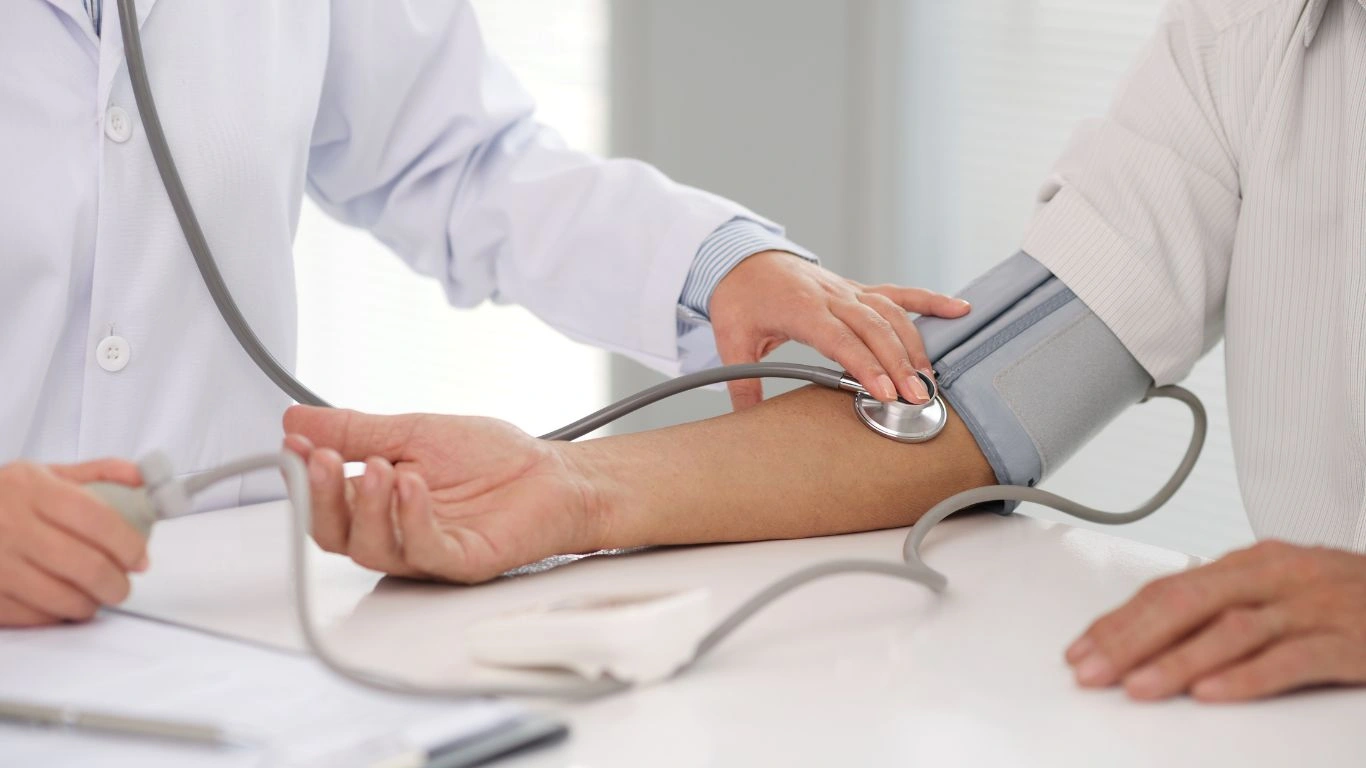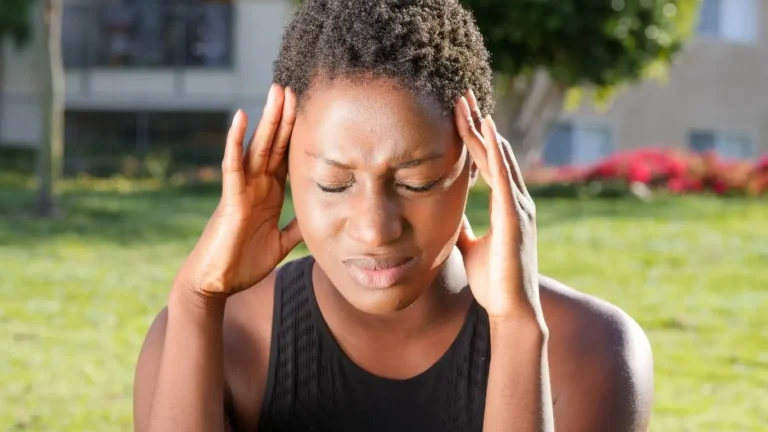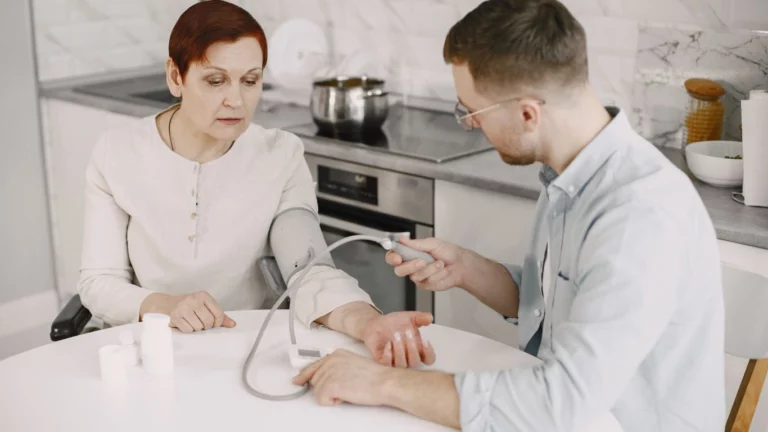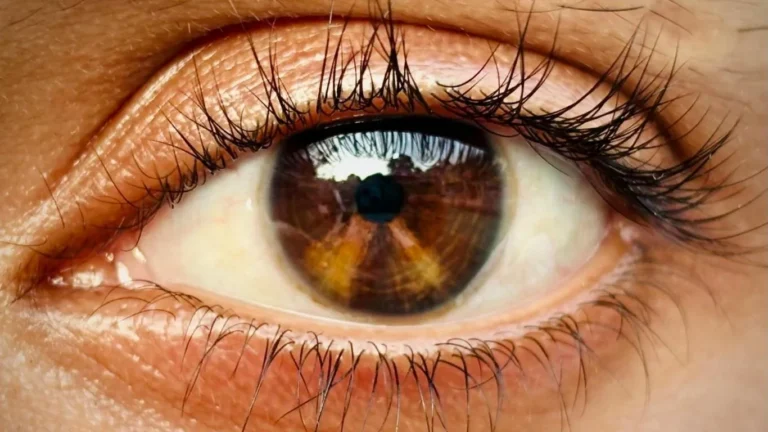Struggling to Sleep? How to Relax BP Before Bedtime Naturally
If you’re like many of my patients who ask, how to relax BP before bedtime, you’re definitely not alone. As a physician who’s spent years focusing on hypertension, I can tell you that nighttime blood pressure management is often overlooked—but it’s actually hugely important. The body is supposed to reset during sleep, but when your blood pressure stays elevated, it stresses your cardiovascular system and keeps you from getting that true restorative rest. I’ve seen folks come in with perfectly normal daytime readings, but at night? A whole different story. And that silent spike can raise the risk for heart disease and stroke. Let’s talk about what actually works—beyond just taking your meds.
Why Nighttime BP Matters More Than You Think

Most people assume blood pressure is a daytime issue. But your heart doesn’t punch out at 5 PM. Blood pressure naturally dips at night—something we call “nocturnal dipping.” When it doesn’t? That’s a red flag. In my clinic, I’ve seen patients whose blood pressure never goes down at night, a condition known as non-dipping hypertension. This pattern has been linked to increased risks of heart attacks, strokes, and even kidney disease.
That’s why knowing how to relax BP before bedtime is more than just a sleep hack—it’s a legit step toward long-term heart health. And no, it’s not all about taking more pills. There are smart, simple strategies that can actually make a big difference, and we’ll walk through them below.
Understanding the Evening Spike: What’s Raising Your Pressure at Night?

One of the most common questions I get is, “Why is my blood pressure higher at night?” It’s not always obvious. A few things might be going on:
- Stress overload: If you’re replaying your entire to-do list while lying in bed, your cortisol is still running the show.
- Poor sleep hygiene: Scrolling on your phone until midnight? That blue light delays melatonin and keeps your system revved up.
- Late-night eating or drinking: Especially salty foods or alcohol—they mess with your body’s balance and hydration levels.
- Untreated sleep apnea: Huge one here. If you snore loudly or wake up gasping, this could be the culprit behind elevated nighttime readings.
I had a patient—a truck driver—who came in with normal morning BP but high nighttime numbers. Turned out, he had undiagnosed sleep apnea. Once we got him set up with a CPAP, his nighttime BP readings improved within a few weeks. Sometimes it’s about connecting the dots.
How to Relax BP Before Bedtime: Proven Strategies That Actually Work

1. Set a Wind-Down Routine (and Stick to It)
I can’t stress this enough—consistency is key. A calming pre-sleep ritual signals to your body that it’s time to shift gears. Mine involves chamomile tea, stretching, and reading an actual book (yes, paper!). Try this:
- Dim the lights an hour before bed.
- Turn off screens—your phone doesn’t need to come to bed with you.
- Practice 5–10 minutes of deep breathing or progressive muscle relaxation.
This isn’t just feel-good fluff. Studies show that creating a structured evening routine can lower nighttime systolic blood pressure by up to 10 mmHg. That’s a major win without a prescription.
2. Magnesium-Rich Evening Snacks
This one’s a little nutrition tip I often give patients. Magnesium helps relax blood vessels and supports muscle recovery—which includes the heart. Try these easy options:
- Handful of almonds or pumpkin seeds
- Small banana with nut butter
- Steamed spinach with garlic and olive oil (yes, even as a nighttime mini-meal!)
Avoid high-sodium foods late at night. Even seemingly “healthy” snacks like store-bought soup or crackers can sneak in 700–1000mg of sodium per serving. I had a patient eating microwave popcorn before bed thinking it was harmless—it wasn’t.
3. Try Gentle Evening Movement (Not Hardcore Workouts)
One thing I often remind my patients: exercise timing matters. While staying active is crucial for managing hypertension, squeezing in an intense cardio session right before bed can actually raise your heart rate and stimulate cortisol—pretty much the opposite of what we want before lights out.
Instead, try something more low-key after dinner. Think:
- A 15–20 minute stroll around your neighborhood
- Gentle yoga or tai chi—YouTube has tons of guided options
- Light stretching with slow, mindful breathing
One of my patients, a retired schoolteacher, started doing a “wind-down walk” with her dog every evening. Not only did her systolic BP drop by about 8 points at night, but she also told me she started sleeping like a rock. Simple, doable stuff makes a huge difference.
Herbal Helpers: Natural Support for Lowering Nighttime BP

I always tell my patients—natural remedies aren’t magic, but they can support your routine when used smartly. Here are a few herbal options that have some legit science behind them when it comes to helping you relax BP before bedtime:
- Chamomile tea: Mild sedative effect. Helps calm the nervous system and reduce stress hormones.
- Hibiscus tea: Rich in antioxidants. Shown in studies to modestly lower blood pressure.
- Valerian root: Can ease anxiety and support better sleep. Start with a small dose to see how your body reacts.
Of course, always check with your doc before adding any herbs, especially if you’re on blood pressure meds. Some combinations may interact. I had a patient mix valerian and a calcium channel blocker—her pressure dropped a bit too low. So, safety first.
Timing Matters: When You Take Your Meds Could Be the Key

This one’s big. I can’t count how many times I’ve tweaked the timing of a patient’s BP meds and seen dramatic improvements in their overnight readings. If you’re taking all your meds in the morning, you might be missing an opportunity to keep your pressure steady overnight.
There’s a concept called chronotherapy—basically syncing medication timing with your body’s natural rhythms. Some studies show that taking at least one antihypertensive medication at bedtime instead of in the morning can:
- Improve nocturnal BP control
- Enhance dipping patterns
- Lower the risk of cardiovascular events
That said, this isn’t one-size-fits-all. What worked for one of my patients—a night-shift nurse—didn’t work for a retired accountant with a very different lifestyle. Always check with your prescribing provider before changing up your schedule.
Digital Tools That Can Help You Stay on Track

Managing blood pressure in real life means more than just numbers in a chart. And thank goodness we’ve got tech to help. I’m a big fan of digital tools that make this process easier and more personalized.
Smart devices and wearables
There are some surprisingly accurate smartwatches and BP cuffs that can track nighttime readings. I often recommend my patients try something like the Omron wrist monitor or Withings sleep mat, especially if we’re suspicious of non-dipping patterns or masked hypertension.
Helpful apps
Apps like:
- My BP Lab – developed with university research backing, helps log stress and BP trends
- Sleep Cycle – tracks your sleep quality and helps spot disturbances that might affect BP
- Pill Reminder – a simple one, but it helps keep med timing consistent, which is half the battle
I had one patient who started logging her BP every night with a wearable device. We discovered her pressure was spiking around 2 AM—turns out her late-night snacking and a subtle sleep disorder were both contributing. With that insight, we made a couple tweaks, and her BP stabilized within two months.
Don’t Underestimate the Power of Stress Management

One last (but major) piece of the puzzle: stress. It’s not just a buzzword. Chronic stress messes with your hormones, your sleep, your eating habits—everything. I’ve seen people with good routines and clean diets still struggle with nighttime BP because they’re stuck in a state of constant mental overload.
Here are a few tools I’ve recommended that have actually worked for real people:
- Guided meditation apps: Insight Timer, Calm, Headspace—all solid options
- Journaling: Especially effective if your mind races before bed. Just a quick 5-minute brain dump can be enough.
- Breathing techniques: Try 4-7-8 breathing or box breathing—quick, easy, and surprisingly powerful
One patient, a small business owner, started doing 10 minutes of breathing exercises before bed while lying on an acupressure mat. Not only did his BP readings improve, but he told me he hadn’t felt that relaxed in years. Sometimes, it’s about giving yourself permission to just breathe.
Creating a Bedroom Environment That Supports Lower BP

Let’s talk about your sleep space. You can be doing everything else right—eating clean, moving your body, taking your meds—and still struggle to bring your blood pressure down at night if your bedroom’s a mess (and I don’t just mean laundry piles, although guilty here too!).
One of my patients once said, “I can’t fall asleep because my room feels like a boardroom.” Fluorescent lighting, TV blaring, constant email pings from the nightstand… yep, that’ll keep your nervous system wide awake. The goal is to create a cocoon—a sleep sanctuary that tells your body it’s safe to shut down.
Make these small changes:
- Blackout curtains: Light disrupts melatonin. Even streetlamps or hallway light can interfere.
- Cool it down: Ideal sleep temperature is around 65–68°F. Cooler temps help trigger sleep and support natural BP dipping.
- Declutter the tech: Remove unnecessary electronics or at least put your phone on airplane mode and keep it across the room.
- White noise: Helps muffle sudden noises that might wake you (and elevate your BP mid-sleep).
One small fix that made a huge difference for a client of mine? Swapping a bright alarm clock for a dim red-light version. Just that single tweak led to deeper sleep and steadier morning blood pressure. Sometimes, the details really matter.
The Power of Consistency: What You Do Daily Shapes Your Nights

Here’s something I always emphasize in my practice: the little things you do day in and day out affect your blood pressure more than the “big moves.” Fancy supplements and gadgets can help, sure, but nothing replaces the impact of consistency.
When it comes to how to relax BP before bedtime, think of it as training your body like you’d train a muscle. You’re gently teaching your system when to ramp up and when to slow down. And just like fitness, it takes repetition to build that rhythm.
Try making these habits non-negotiable:
- Set a firm bedtime and wake time—even on weekends.
- Limit caffeine after 2 PM (yep, even that innocent “afternoon tea”).
- Have a consistent light, low-sodium dinner.
- Take time to mentally “log off”—no doomscrolling the news before bed!
These are the exact kinds of habits that helped one of my long-time patients—mid-60s, former smoker, with stubborn nighttime hypertension—finally get her BP under control. She didn’t add any new meds. Just committed to a nightly wind-down, stuck to her bedtime, and swapped wine for herbal tea. Within three months, her nighttime numbers dropped 12 points. That’s powerful stuff.
When to Talk to Your Doctor About Nighttime BP
Let’s be real: lifestyle changes go a long way, but sometimes you need to dig deeper. If you’ve made several of the changes we’ve talked about and your blood pressure still isn’t dipping at night, it’s worth a deeper dive with your provider.
Red flags worth discussing:
- Morning headaches or brain fog (possible sign of elevated overnight BP)
- Waking up multiple times drenched in sweat or gasping for air
- Consistently high morning BP readings—even when your evening numbers look fine
- New snoring or changes in sleep quality
I’ve referred many patients for overnight sleep studies—even ones who swore they slept “okay”—and it’s amazing what turns up. One man in his 40s with great physical fitness ended up needing treatment for sleep apnea. Once he started CPAP therapy, both his blood pressure and his mood improved within weeks. Don’t ignore the signals your body’s trying to send.
Final Thoughts: It’s Not Just About Numbers—It’s About Quality of Life
We often focus so much on the BP readings that we forget why they matter in the first place. Lowering nighttime blood pressure isn’t just about avoiding heart attacks (although yes, we love that)—it’s about waking up feeling rested. Feeling like yourself again. Having energy to do the things you love without that underlying hum of anxiety or fatigue dragging you down.
I’ve seen firsthand how small changes—done with intention—can turn someone’s entire health trajectory around. And while there’s no magic bullet, there’s also no better time to start than tonight.
So if you’ve been wondering how to relax BP before bedtime, I hope these insights help you take the first few meaningful steps. You’ve got this. And if you ever feel stuck, talk to someone who can guide you through it—I say this both as a doctor and someone who’s walked this road with hundreds of patients over the years.
References
- https://www.heart.org/
- https://www.sleepfoundation.org/
- https://www.nhlbi.nih.gov/
- https://www.cdc.gov/
Disclaimer
This article is for informational purposes only and does not replace professional medical advice. Always consult with your physician or a qualified healthcare provider before making changes to your medication, sleep routine, or health regimen. Individual responses to interventions can vary widely. The experiences shared here are drawn from clinical practice and should not be interpreted as universal outcomes.

Dr. Gwenna Aazee is a board-certified Internal Medicine Physician with a special focus on hypertension management, chronic disease prevention, and patient education. With years of experience in both clinical practice and medical writing, she’s passionate about turning evidence-based medicine into accessible, actionable advice. Through her work at Healthusias.com, Dr. Aazee empowers readers to take charge of their health with confidence and clarity. Off the clock, she enjoys deep dives into nutrition research, long walks with her rescue pup, and simplifying medical jargon one article at a time.







